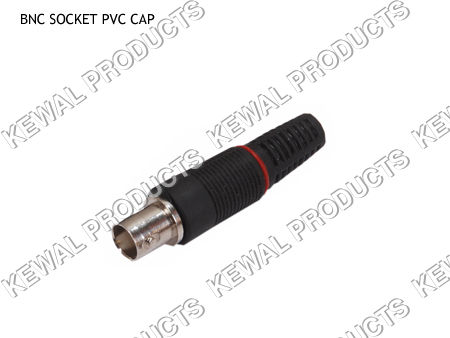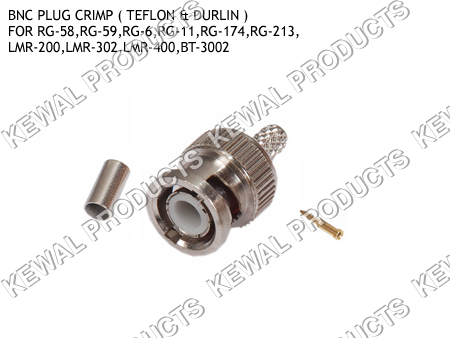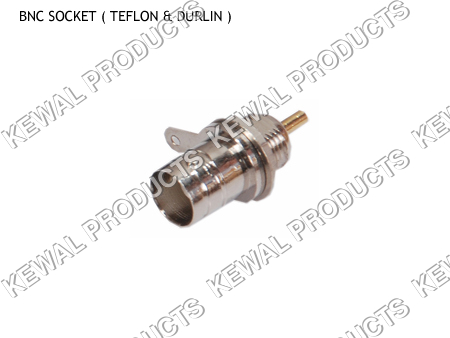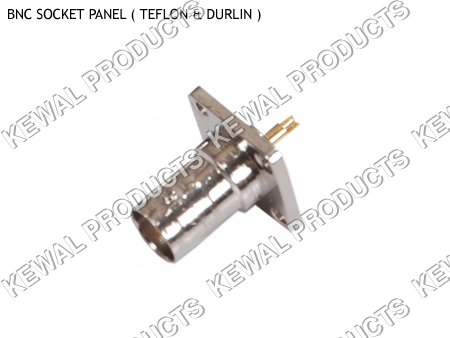Bnc Plug
Bnc Plug Specification
- Material
- Brass (Nickel Plated)
- Connector
- BNC Plug
- Voltage Rating
- 500V RMS
- Male End Type
- BNC Male Plug
- Female End Type
- BNC Female Socket Compatible
- Pairs
- Single
- Capacity
- 50 Ohm / 75 Ohm
- Connector Type
- Bayonet
- Outer Diameter
- 5.2 mm
- Color
- Silver
- Number of Conductor
- 1
- Length
- Custom lengths available
- Cable Type
- Coaxial
- Sheild
- No Shield
- Flame Resistance Level
- Standard
- Insulation
- PVC
- Jacket Material
- PVC
- Wire Gauge
- 22 AWG
- Cable Length
- As per requirement
Bnc Plug Trade Information
- Minimum Order Quantity
- 1000 Pieces
- Delivery Time
- 2 Week
- Sample Available
- Yes
- Sample Policy
- Contact us for information regarding our sample policy
- Packaging Details
- Standard
- Main Domestic Market
- All India
About Bnc Plug
For consistently meeting the needs of our valuable clients, we have become a reputed manufacturer and supplier by offering qualitative array of Bnc Plug. It is suited to accommodate a large variety of RG and industry-standard cables, in a variety of termination styles. This is used for connecting two cables to a network interface card (NIC). A BNC plug allows connecting two cables together. This is manufactured under the observation of our skilled experts who make use of quality approved materials. We offer this Bnc Plug in diverse specifications at negotiable prices.
Features:
- Easy to use
- Superior strength
- Robust construction
Versatile and Robust Construction
Built with gold-plated brass contacts and a nickel-plated body, the BNC Plug ensures superior conductivity and durability. The PTFE insulator and flame-resistant PVC jacket add layers of safety and reliability, making this connector suitable for frequent use in demanding settings.
Flexible Installation Options
The connector is compatible with both crimp and solder termination styles, allowing for a secure and lasting connection. Its cable, free-hanging mounting type provides adaptability for numerous setups, including customized cable lengths tailored to your project requirements.
Optimized Signal Integrity
Available in 50 Ohm and 75 Ohm capacities, the BNC Plug caters to various signal and video transmission needs. The straight body style and BNC bayonet connection ensure a firm, quick installation for professional-grade signal performance.
FAQs of Bnc Plug:
Q: How can the BNC plug be mounted and terminated for use in custom cable assemblies?
A: The BNC plug supports cable, free-hanging mounting and can be terminated using either crimp or solder techniques. This versatility allows efficient integration into custom cable assemblies according to project specifications.Q: What benefits does gold-plated brass contact material provide for a BNC plug?
A: Gold-plated brass offers superior electrical conductivity, enhanced corrosion resistance, and ensures stable signal transmissionideal for minimizing signal loss in both 50 Ohm and 75 Ohm applications.Q: When should I use a 50 Ohm versus a 75 Ohm BNC plug?
A: Choose a 50 Ohm BNC plug for RF, data, and wireless communications requiring impedance matching. A 75 Ohm BNC plug is best for broadcast and video signal transmission, where lower signal loss over distance is important.Q: Where can these BNC plugs be installed, and are they weatherproof for outdoor usage?
A: These BNC plugs are designed for indoor environments and are not weatherproof or shielded. They are ideal for studio, lab, telecom, and similar controlled settings but are not intended for outdoor exposure.Q: What is the typical process for connecting a BNC plug with crimp/solder termination?
A: To connect, strip the coaxial cable to the recommended length, fit the insulator, crimp or solder the center conductor to the contact, then secure the outer shieldeither by crimping the ferrule or solderingbefore assembling the connector body.Q: What are the usage advantages of a BNC plug with PTFE insulation?
A: PTFE insulation provides excellent dielectric properties, heat resistance, and stability, ensuring reliable performance and safety during repeated mating cycles in high-frequency or critical signal applications.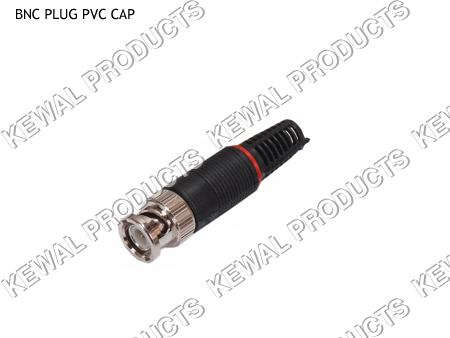
- Minimum Order Quantity
- 1000 Pieces
- Delivery Time
- 2 Week
- Main Domestic Market
- All India

Price:
- 50
- 100
- 200
- 250
- 500
- 1000+
More Products in BNC Connectors Category
Bnc Socket Pvc Cap
Price Range 10.00 - 100.00 INR
Minimum Order Quantity : 1000 Pieces
Sheild : None
Insulation : PVC
Connector Type : Other, Socket Cap
Color : Black
BNC Plug Crimp Type
Price Range 10.00 - 100.00 INR
Minimum Order Quantity : 1000 Pieces
Sheild : No Shield
Insulation : PTFE
Connector Type : Other, Crimp
Color : Other, Silver
BNC Socket
Price Range 10.00 - 100.00 INR
Minimum Order Quantity : 1000 Pieces
Sheild : Yes, Metal Shielded
Insulation : PTFE (Polytetrafluoroethylene)
Connector Type : Other, Coaxial, Bayonet Mount
Color : Other, Silver
BNC Socket Panel Type
Price Range 10.00 - 100.00 INR
Minimum Order Quantity : 1000 Pieces
Sheild : Yes, Metallic Grounded Shell
Insulation : PTFE (Polytetrafluoroethylene)
Connector Type : Other, Panel Mount BNC Socket (Female)
Color : Other, Silver/Metallic


